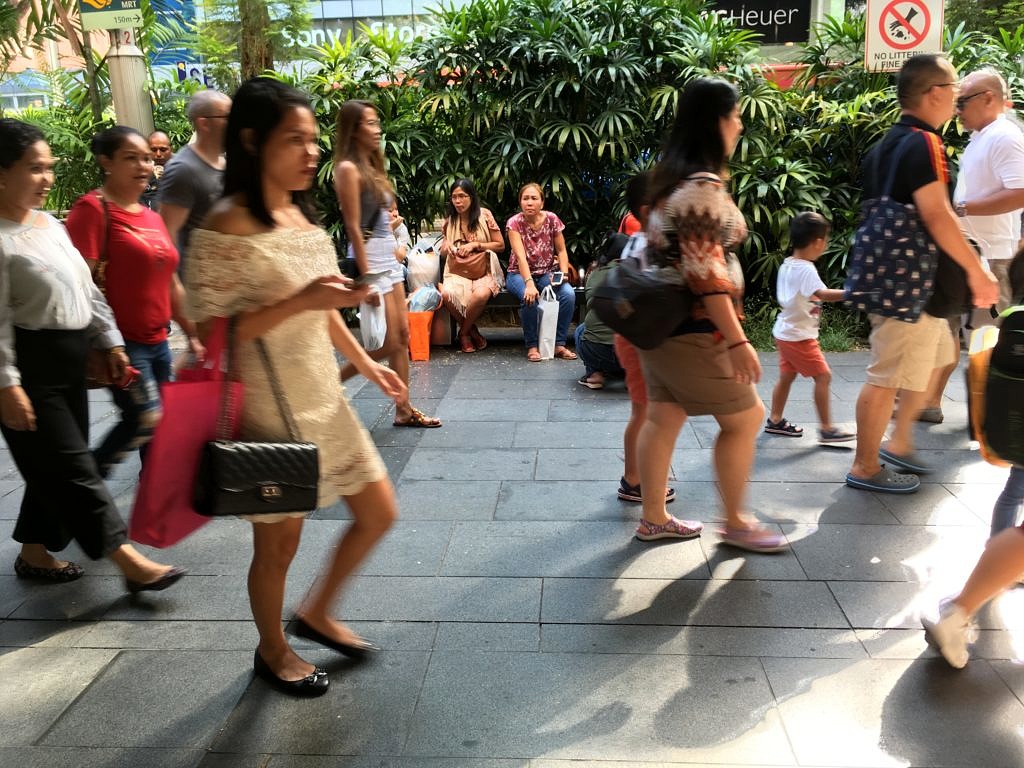
Ageing Migrant Domestic Workers in Singapore
Megha Amrith
Since the 1970s and 1980s, temporary labour migration policies became increasingly widespread across Asia and the Gulf States. Migrant labourers from a number of South and Southeast Asian countries began moving across borders in search of employment in higher-income economies in Asia and the Middle East. Among them were migrant women who were hired as domestic workers in cities such as Singapore and Hong Kong. Migrant domestic workers sustain households in these cities. They carry out a range of tasks in the household from cleaning to cooking, childcare, and gardening. In recent years, as a result of rapidly ageing populations, migrant domestic workers also provide eldercare.

Migrant domestic workers in Singapore, arrive on renewable two-year temporary contracts. They hold the most restrictive work visa which requires them to live in their employers’ homes, excludes them from national labour legislation and social security schemes, and which do not permit them to bring their families with them.
Since the 1970s and 1980s, temporary labour migration policies became increasingly widespread across Asia and the Gulf States. Migrant labourers from a number of South and Southeast Asian countries began moving across borders in search of employment in higher-income economies in Asia and the Middle East. Among them were migrant women who were hired as domestic workers in cities such as Singapore and Hong Kong. Migrant domestic workers sustain households in these cities. They carry out a range of tasks in the household from cleaning to cooking, childcare, and gardening. In recent years, as a result of rapidly ageing populations, migrant domestic workers also provide eldercare.
Migrant domestic workers in Singapore arrive on renewable two-year temporary contracts. They hold the most restrictive work visa which requires them to live in their employers’ homes, excludes them from national labour legislation and social security schemes, and which do not permit them to bring their families with them.


Singapore initially granted work permits to a limited number of domestic workers from the region in 1978 under a temporary contract labour migration scheme. This number went up steadily over the years. There are now 246,300 migrant domestic workers in Singapore (Ministry of Manpower, December 2021)
The Philippines has one of the world’s largest communities of migrant workers. In 2021, overseas Filipinos sent back a total of US$ 34 billion in personal remittances (BSP, 2022)
Over 70% of Indonesian migrant women abroad are employed as domestic workers (World Bank, 2016).
Please click on one of the hotspots
Background
There are nearly 250,000 migrant domestic workers in Singapore. They come from other countries in the region including the Philippines, Indonesia, Sri Lanka, India and Myanmar, which often rely heavily on the remittances of migrant workers.
Migrant domestic workers come from a range of socio-economic backgrounds and their motivations to migrate are wide-ranging. Economic reasons – such as earning a higher salary abroad – are most frequently stated, but women also migrate to seek new beginnings and new experiences, or to escape constraining social relationships.
Long-term temporariness
Despite holding temporary contracts, it is common for migrant domestic workers to stay abroad for many years, sometimes decades.
Supporting families back home
Migrant women’s journeys are often tied to financially supporting their kin back home for their children’s education, for medical emergencies, building a family home and everyday expenses. These life projects take many years to achieve.

Creating new lives abroad
Migrant domestic workers pursue a range of aspirations, build relationships with employers’ families, and establish communities with locals and with other migrant workers. They develop a sense of belonging abroad, despite their temporary status.

Uncertain futures
Contracts can be renewed until the retirement age of 60 after which renewals are decided on a case-by-case basis. There are no pathways to permanent residence or citizenship in Singapore. With little savings of their own and fears of reintegrating with their original homes after many years abroad, domestic workers face financial and emotional insecurities.

Long-term temporariness
Despite holding temporary contracts, it is common for migrant domestic workers to stay abroad for many years, sometimes decades.
Supporting families back home
Migrant women’s journeys are often tied to financially supporting their kin back home for their children’s education, for medical emergencies, building a family home and everyday expenses. These life projects take many years to achieve.
Creating new lives abroad
Migrant domestic workers pursue a range of aspirations, build relationships with employers’ families, and establish communities with locals and with other migrant workers. They develop a sense of belonging abroad, despite their temporary status.
Uncertain futures
Contracts can be renewed until the retirement age of 60 after which renewals are decided on a case-by-case basis. There are no pathways to permanent residence or citizenship in Singapore. With little savings of their own and fears of reintegrating with their original homes after many years abroad, domestic workers face financial and emotional insecurities.
Migrant domestic workers typically have one day off per week to meet friends, rest, and pursue diverse interests.
Financial education courses have recently become popular among domestic workers who try to plan more secure futures for themselves.
Faith plays a key role in migrant women’s lives, offering comfort and hope for the future.

